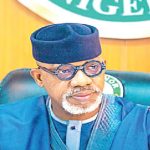Real estate operators say the outlook for 2024 is positive although concerns such as high exchange rate and rising building materials prices remain.
A relatively stable market is expected in the new year with elections and litigations arising therefrom now over and a new administration in place with promises of stabilising the economy.
The operators reason that the performance of the sector in the first quarter of 2024 may not be different from what was recorded in 2023.
Another reason for this lag, according to the operators, is that potential investors will be cautious and take time to monitor the economy, as it relates to inflation, exchange rate, prices of building materials, government regulations, budget, and expenditure patterns.
It is expected that the attempts by the government to convince the international community and investors to invest in Nigeria are quite strategic and would positively influence the performance of the economy if the needed confidence is created.
Increasingly, technology is gaining traction in real estate and it is expected that it will be one of the key factors that shape activities in the sector in the new year as the operators see virtual reality property tours, blockchain in real estate transactions, and Artificial Intelligence (AI) making buying and selling process more efficient and accessible.
In the outgone year, insecurity was a major disincentive to investment. However, in the new year, it is expected that cities without many security challenges will witness regeneration and transformation.
MKO Balogun, Group CEO, Global PFI, sees “a resurgence of investment in housing, retail and warehousing” adding, “commercial and retail assets slowed in 2023 due largely to the current economic situation as seen in inflation, low disposable income, foreign exchange volatility.”
Many urban centres will witness positive changes in real estate, but the most prominent among them are Lagos, being the economic hub of the country; Abuja, the political capital; Port Harcourt, the oil and gas city; Ibadan as a growing metropolis; Abeokuta being the emerging economic centre; Uyo as a blossoming urban centre; and Kano metropolis.
Funso Adebayo, a real estate manager, says there will be opportunities for investment in some locations that promise good returns for investors in the new year. He explained that with high demand and limited supply, sellers could anticipate competitive offers and faster sales.
“Primary markets will become more competitive and expensive while the secondary markets will be offering attractive opportunities for buyers and investors looking for affordable properties,” he said.
According to him, besides Lagos, Abuja and Port Harcourt, other cities in the country also present good prospects for investment in the new year. These include Enugu, Benin City, Oyo, Akwa Ibom, among others.
“Enugu is a major city in south-eastern Nigeria, near its border with Cameroon. Enugu has many universities including the University of Nigeria Nsukka (UNN), the Federal University of Technology Akoka (FUTA), Nnamdi Azikiwe University Awka (UNIZIK) and these create opportunities for investors in residential real estate and student housing.
In Benin City, most of the lands are located within urban areas, making them more expensive. Most land developers offer pre-designed units which also include furniture and fitted kitchens. Some homes also come with appliances such as fridges and washing machines.
Real estate in Oyo is one of Nigeria’s fast-growing sectors and a viable place for beginners to begin building their investment portfolio. “If you have never invested in property before, but have some capital set aside, you should consider buying land or buildings,” Adebayo advised.
For Ken Obidiegwu, part of the reason for the positive outlook for the sector in the new year is that people will continue to need houses to live while investors will need real estate to invest in. He believes that given the 2024 budget size and the courage of the Federal Government to improve the infrastructure in the country, sales and prices of real estate are expected to be on the rise.
“Nigeria’s growing population and urbanisation are driving demand for residential properties. This includes blocks of flats, terraces, apartments, houses, and condominiums. Others are the retail market and warehouses, hospitality, and land market,” he said.




